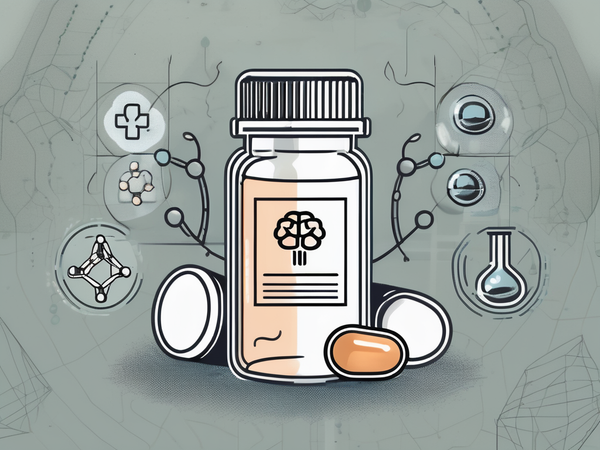Trying to find the right work-life balance can be very challenging. We have to worry about the deadlines at work along with the upcoming birthdays, anniversaries, vacations, etc. Amidst all this, you are worried about your own ambitions and how to achieve them. All these things contribute heavily to your mental stress.
General symptoms of stress include tiredness, fatigue, headache, higher heart rate, difficulty breathing, forgetfulness, lack of concentration, and lack of sleep. However, in the long run, stress can cause serious psychological and physical health issues. Let’s learn more about stress, how it impacts your health, and ways to manage it.
How does stress impact your mental and physical health?
1. Memory and learning
When you are stressed, a naturally existing steroid hormone called glucocorticoids is released. Evidence suggests that higher levels of glucocorticoids affect cognition by having long-lasting effects on the hippocampus. The hippocampal region is a part of the brain that plays a significant role in learning and remembering information.
A popular theory called cognitive load theory explains how learning and memory are compromised when there is too much information in front of you. A part of the theory blames the difficulty of the information for increasing the cognitive load, but stress is also a major contributor that makes it difficult to comprehend and retain information.
A study also revealed that stressful life events that occur over a period of up to three years are linked to rapid cognitive deterioration in older people with mild cognitive impairment.
In a nutshell, being stressed for a long period of time will certainly affect your ability to learn, comprehend, and remember.
2. Digestive issues
It is said that your gut is your second brain. Why? Well, the gastrointestinal tract has a layer of neurons that make up the Enteric Nervous System, which forms the second brain. Numerous functions, including hormone release and blood flow, that are crucial for digestion are controlled by the second brain.
Your brain and the ENS system can communicate using neurotransmitters, so any input from the brain can change the signals that the ENS sends to your GI tract. High stress levels may halt all internal bodily functions in an effort to save energy. The digestive process is also included in this. As a result, when you are under too much stress, you feel a void in your stomach.
Our gut has friendly bacteria that help us digest food. These bacterial colonies have a definite composition, which can be disrupted due to too much stress. This could also trigger the gut bacteria to release toxins in the GI tract.
3. Immunity
70–80% of our immunity is in the gut. We just learned that excessive stress can affect our gut, which in turn affects our immune system.
Additionally, a stress hormone called cortisol affects your immunity. Originally, cortisol is anti-inflammatory and helps initiate your immune response, but if present in excess, it can inhibit the immune response.
When you are stressed, cortisol levels increase and your body goes into fight, flight, or freeze mode. But when the stressful event ends, your cortisol levels reduce and your body returns to a normal state. But what if you are constantly stressed and there is an overflow of cortisol? This negatively impacts your immune system because, during the fight, flight, and freeze modes, your important bodily functions like immune function and digestion are stopped.
4. Stress and heart
You must have observed how your heart rate increases and you start breathing heavily when you are stressed or anxious. Chronic stress increases your risk of developing heart disease. Other than heart rate, psychological stress can also increase your blood pressure. It does this for survival when your body goes into fight-or-flight mode.
A study concluded that patients with a history of social isolation, relationship stress, occupational stress, childhood trauma, or abuse had an increased risk of experiencing a cardiovascular incident.
5. Secretion of hormones
Hormones control nearly every process in your body; from digestion to development to sleep and mood. Any change in the ideal hormonal secretion, either more or less, can affect the regular functioning of our body.
Even minor stress can trigger the hypothalamic-pituitary-adrenal axis, which controls some of the most important hormone-secreting sites.
How to manage stress effectively and safely
For many, one of the most common signs of stress is headaches, and most people consume painkillers to reduce the pain, but the relief is only temporary. By using painkillers, you are just trying to ease the discomfort you feel as a result of excessive stress. This practice will do more harm than good in the long run. Here are some things you can do to effectively manage stress.

1. Sleep well
Sleep and stress are correlated. Excess stress leads to a lack of sleep, and less sleep can lead to excessive and unmanaged stress. When you sleep, your cortisol levels drop, thus helping you ease the discomfort caused by stress. A good eight hours of uninterrupted sleep is necessary to help your body recover on its own, remove toxins, and improve cognitive function.
2. Exercise regularly
Regular exercise reduces stress hormones like cortisol while increasing feel-good hormones like endorphin to promote relaxation. You can try any exercise you like, but nothing beats a nice walk or run in the presence of nature. You can also try yoga to exercise without increasing your heart rate and practice mindful movements.
3. Have a nutritious diet
Try to eat healthy food that provides you with your daily dose of vitamins and minerals. Antioxidant-rich foods like dark chocolate, kimchi, parsley, sunflower seeds, and garlic can lower stress hormones and inflammation in the body. Matcha green tea is also great, as it contains L-theanine, a non-protein amino acid with powerful stress-relieving properties.
4. Include supplements
It can be difficult to get enough nutrients from food alone; therefore, you should take multivitamin supplements that provide a precise dose of nutrients in an easy-to-consume form. When looking for supplements for anxiety and stress, look for ingredients like Suntheanine®️ which is 10x more powerful than L-theanine and works remarkably well to provide tranquility and improve the quality of sleep. Magnesium supplements mixed with chamomile and suntheanine create a fantastic combo that promotes calmness and keeps your anxiety in check.
5. Practice meditation
Meditating regularly can help you consciously get into a state of relaxation and calmness. Moreover, by practicing deep breathing, you bring your heart rate to a normal level.
6. Avoid social isolation
Meeting with people and exchanging thoughts and ideas helps you channel your negative energy. It can also introduce you to all the good things about yourself and your life. Speaking scientifically, it helps reduce cortisol levels, thus helping to manage stress and prevent its consequences effectively.
Wrapping Up
Some individuals are aware of their excessive workload and the negative effects it has on their health and well-being. In some cases, people don't even recognize they are under stress. It may occur when we are accustomed to working under pressure to deliver better performance, but this stress still harms our health. This article was to bring your attention to the impact stress can have on your body and mind and to help you take care of yourself. Remember, don’t hesitate to reach out for help whenever you need it.
References
https://link.springer.com/chapter/10.1007/978-3-319-24187-6_1

























